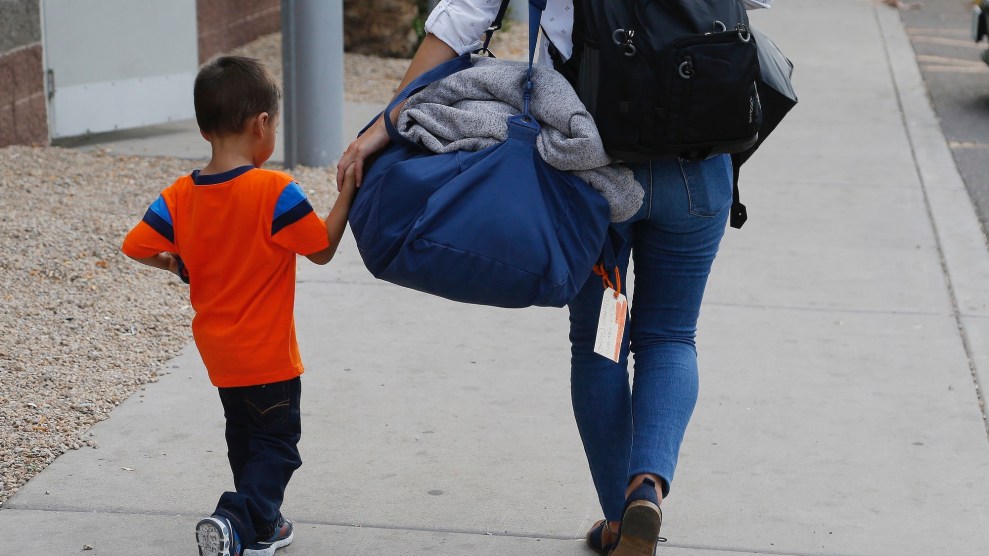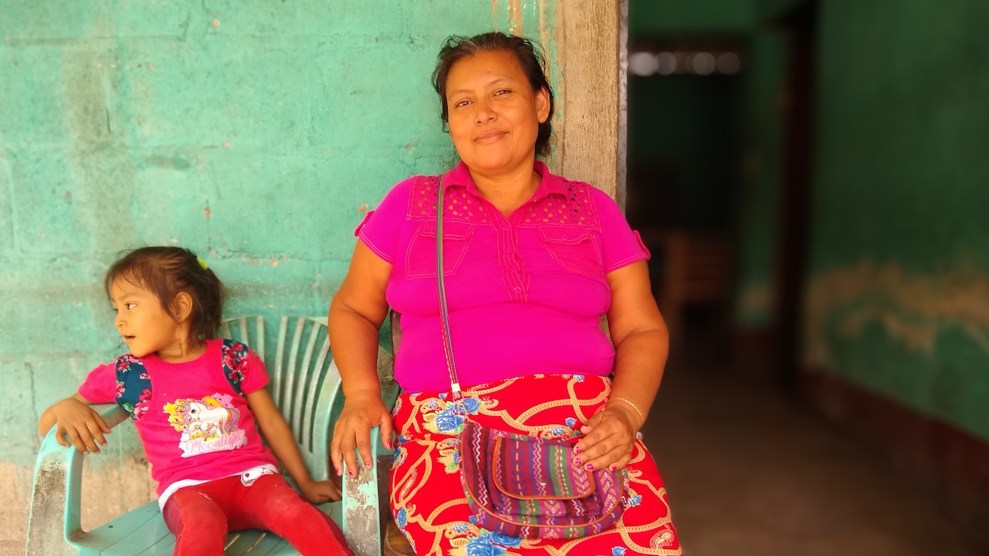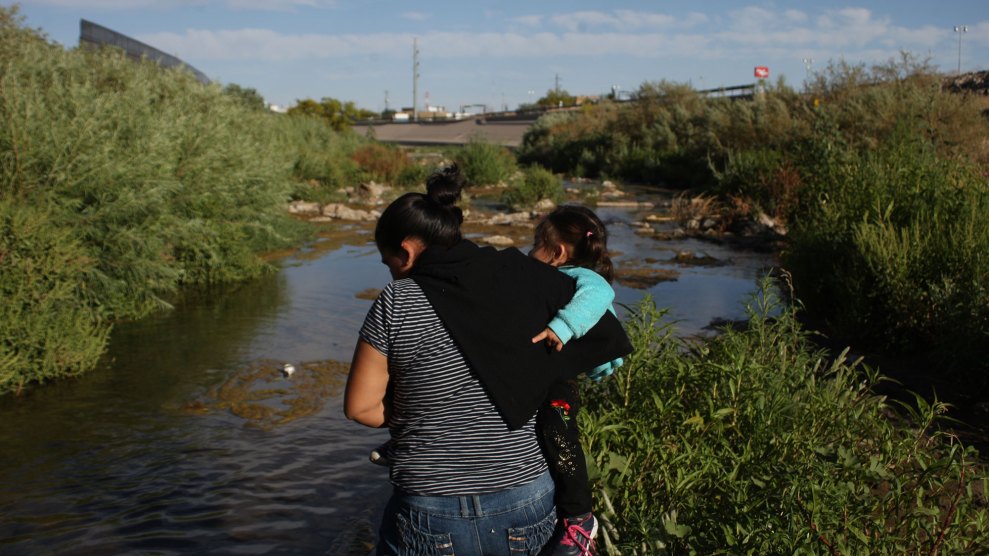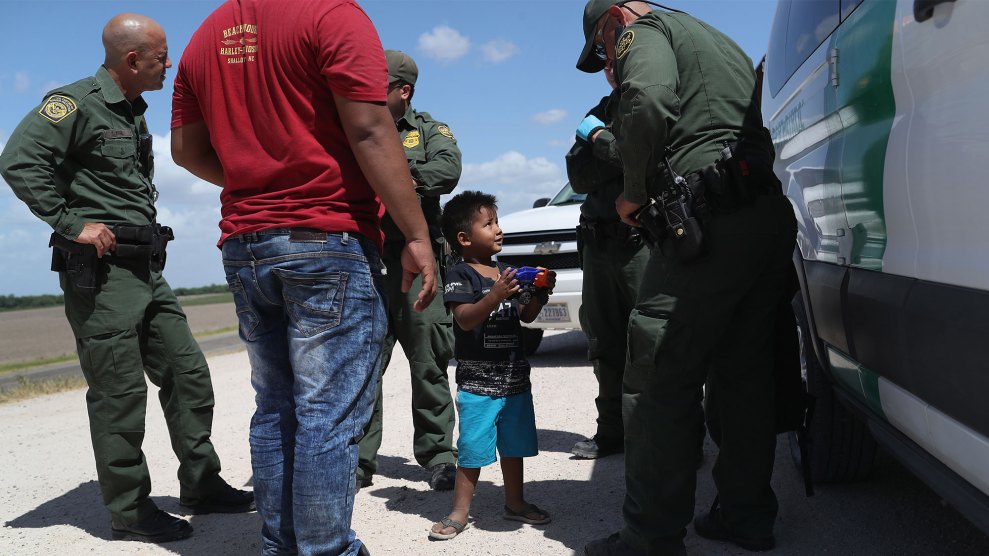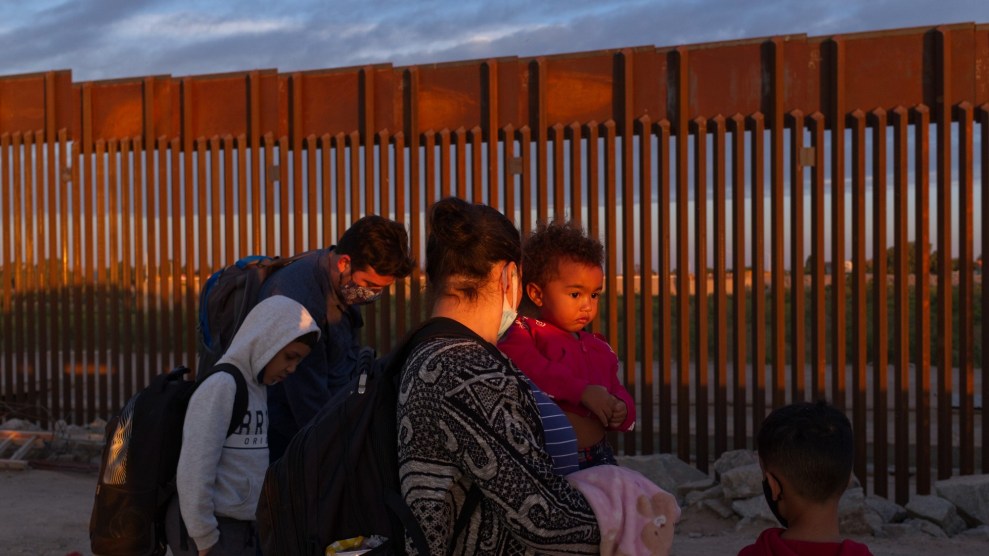
FILE - A pair of migrant families from Brazil wait to be processed by US Border Patrol agents after passing through a gap in the border wall from Mexico in Yuma, Ariz., Thursday, June 10, 2021, to seek asylum.Eugene Garcia/AP
On Monday, the Biden administration reached a settlement in a lawsuit brought on behalf of families separated at the US-Mexico border due to Donald Trump’s so-called “zero-tolerance” policy, under which immigration agents removed thousands of migrant children from their parents.
“The practice of separating families at the southwest border was shameful,” said Attorney General Merrick Garland in a statement. “This agreement will facilitate the reunification of separated families and provide them with critical services to aid in their recovery.”
Under the proposed settlement, which now goes before a judge for approval, affected families will receive temporary legal status, allowing them to live and work in the country while applying for asylum. They’ll also gain access to a range of social supports, including housing assistance and legal aid. The Biden administration is also pledging to continue working to track down and bring together the families who still remain separated.
That’s a crucial piece for many families. An estimated 1,000 children have yet to be reunified with their parents, years after the zero-tolerance policy officially ended. In 2021, the Biden administration set up a task force to reunify these families, estimating that a total of 3,924 kids had been separated under the Trump policy from 2017 to 2021. As of September, however, about a quarter of those children still hadn’t been returned to their parents. Some are currently in the reunification process. But many more remain adrift, scattered across the US in the care of distant relatives, family friends, or foster homes.
“When we brought this lawsuit, no one thought it would involve thousands of children, take us to so many countries searching for families, or last for years,” Lee Gelernt, who serves as deputy director of the ACLU’s Immigrants’ Rights Project and the lead counsel in the case, said in a statement.
In large part, the delay in reunifying families is due to abysmal record-keeping by the Trump administration, which often lost track of parents and children as they were funneled into the custody of different federal agencies. When starting up its work, the task force discovered that the information on these families “was patchwork at best,” compelling officials to comb through government files to identify family members who had been separated. According to one official, the records that did exist were riddled with errors, like incorrect dates and mistaken names. Some children had even been matched with the wrong parents.
The Trump administration knew it couldn’t properly keep track of children and parents after piloting the practice in 2017, an investigation by the Department of Homeland Security’s Office of Inspector General found. But it moved forward with family separations anyway.
Many parents were also deported without their children, which made it extraordinarily difficult to reunite those families. In many cases, the kids remained in the US while parents were sent back to home countries in Central and Southern America, often returning to remote areas where residents can be hard to track down. Many search attempts in these communities have relied on the herculean detective work of nonprofit groups, which, armed with little more than a name or a hometown, sometimes traveled to villages on foot to find parents whose children had been taken away at the US-Mexico border.
“Many times, we obtain more information from records of the people here in Guatemala through birth certificates and we can see where the parents are from,” one attorney told Voice of America. “In other cases, we have to go to the community leaders and try to ask if they know a certain person.”
But even a starting point for the search can be difficult to identify. Many children were just toddlers when they were removed from their families and have been apart from them for several years. The average age of kids separated from their parents at the border was 9 years old, and more than a quarter were under 5. Children this young, attorneys say, can have difficulty recalling their parents’ full names or where they lived.
Under the settlement, which is expected to be approved by US District Judge Dana Sabraw, the Biden administration has agreed to press on with its reunification efforts, however challenging the task may be. But the unfinished work is a clear reminder that, for many, the nightmare of family separation never ended.

